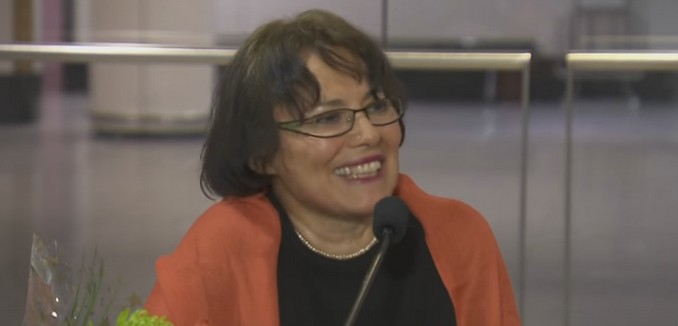A Canadian academic who was freed after spending nearly four months in an Iranian prison on murky charges told CBC News on Wednesday that her interrogators “threatened to send my dead body back to Canada.”
Homa Hoodfar, a retired professor of anthropology at Concordia University who was released on September 26, told CBC that she had resigned herself to being imprisoned for a few years, and began to fear that she “would never be released” after threats from her jailers.
Hoodfar, 65, said members of Iran’s Islamic Revolutionary Guard Corps psychologically tortured her during some 30 interrogations over the course of her 112-day stay in Tehran’s infamous Evin prison. “One of the techniques they have is to make you cry,” she said. “I didn’t, so they played the music that was played when my husband’s body was removed from here [their Montreal apartment].” She described this as “the most difficult moment I had with them.”
Hoodfar, who was originally arrested for “dabbling in feminism,” which she asserted is not a crime in Iran, later had her charges arbitrarily changed to helping a hostile government subvert national security.
She was originally detained in March shortly before her planned return to Canada, at which point her computer, phone, and passport were seized. During her initial detention, Hoodfar was subjected to a dozen interrogations before being released on bail. She was rearrested in June and confined to a small cell at Evin prison.
After several months of incarceration, Hoodfar was escorted to her apartment to collect her belongings, then told to get her hair treated at a salon and wear bright colors because “they wanted me to look good when I was leaving Iran.” She was flown to Oman, which had intervened diplomatically during the United Nations General Assembly meeting last month to obtain her release.
“Although she believes her arrest was part of an internal struggle, she may also have been used as a bargaining chip to try to secure Canada’s commitment to reopen formal diplomatic relations with Iran,” CBC reported. Iran announced that it had begun talks with Canada toward re-establishing diplomatic relations the same day that Hoodfar was released, though Canada’s foreign minister denied that this was part of any deal to free the academic.
Hoodfar’s experience echoes that of Jason Rezaian, the Washington Post reporter who was released from Evin prison in January along with four other American hostages held in Iran. Rezaian and two family members filed a federal lawsuit against Iran on Monday, which claims that he was taken hostage and tortured in order to “extort” concessions from the United States during nuclear negotiations. The suit also alleges that Rezaian “suffered such physical mistreatment and severe psychological abuse in Evin Prison that he … will require specialized medical and other treatment for the rest of his life.”
Rezaian’s release was tied to the $1.7 billion payment that the U.S. delivered to Iran after it freed him and other American hostages, as well as to the lifting of sanctions on two banks that Iran used to finance its ballistic missile program.
[Photo: CBC News / YouTube ]




